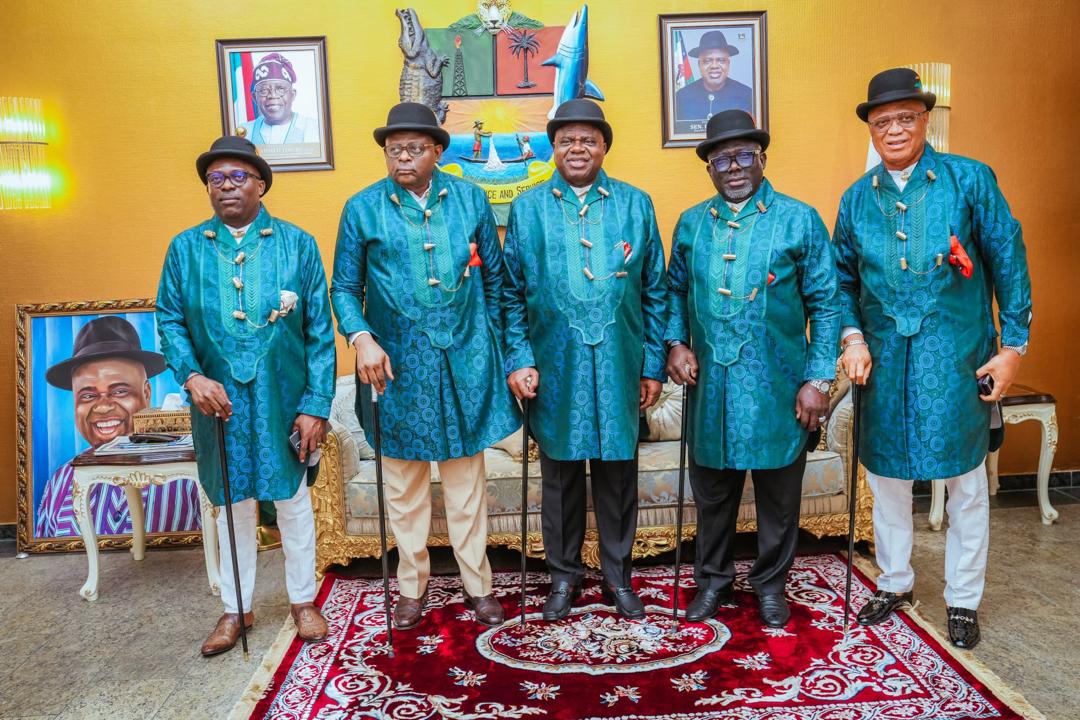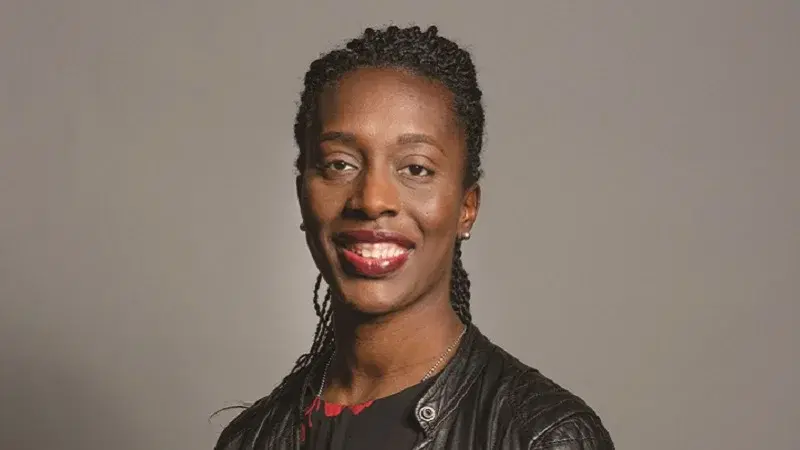News
Nigeria Sliding Towards One-Party State, Group Warns

A civil rights body, Human Rights Writers Association of Nigeria (HURIWA), has urged President Muhammadu Buhari and the leadership of the National Assembly to wade in by enforcing the constitutional provision against illegal cross-carpeting by elected political office holders to safeguard multi-party democracy from imminent collapse.
HURIWA said it was imperative for all relevant law enforcement authorities to take measures to ensure that all elected political office holders in the National and State Assemblies who have violated Section 68(1) (g) of the Constitution by illegally changing political parties to be expelled from the legislative houses to uphold the purity of the Nigerian law.
Section 68 (1) (g) states as follows: “A member of the Senate or of the House of Representatives shall vacate his/her seat in the House of which he/she is a member, if being a person whose election to the House was sponsored by a political party, he/she becomes a member of another party before the expiration of the period for which that House was elected: provided that his/her membership of the latter political party is not as a result of a division in the political party of which he was previously a member or of a merger of two or more political parties or factions by one of which he was previously sponsored.”
In a statement by its National Coordinator, Comrade Emmanuel Onwubiko, and National Media Affairs Director, Miss Zainab Yusuf, HURIWA said there are no verifiable and/or justifiable reasons for the rampant cross-carpeting of elected legislators from the opposition People’s Democratic Party to the ruling All Progressives Congress (APC) since a subsisting Court of Appeal ruling recognized erstwhile Kaduna State governor, Senator Ahmed Makarfi as the authentic national chairman of PDP.
HURIWA alleged that some elements in the national hierarchy of the ruling All Progressives Congress (APC) are manipulating some law enforcement agencies such as the Nigeria Police, Economic and Financial Crimes Commission (EFCC), the Department of State Services and the Independent National Electoral Commission (INEC) to deliberately depopulate the membership of the opposition People’s Democratic Party by blackmailing its legislators to move to APC.
Citing the recent illegal decamping of PDP Senator, Andy Uba from Anambra and Joshua Dariye from Plateau State, and another Senator of the PDP from Ondo State into APC as clear breaches of the Constitution, the group said these moves were a grave threat to multi-party democracy.
HURIWA condemned the silence and failure of the Independent National Electoral Commission to retrieve their certificates of return which they originally gained through the sponsorship of the People’s Democratic Party.
It called on the National Judicial Council (NJC) to sanction Justice Okon Abang of the Federal High Court for wilfully issuing illegal injunctions to suspected sponsored troublemakers who infiltrated the main opposition People’s Democratic Party from the APC to scuttle the viability of the party.
Besides, HURIWA also condemned as undemocratic and ominous, the leaders of APC for mounting pressure on the PDP Senator from Enugu State, Ike Ekwerenmadu, to either move over to APC or be dethroned from his position as the deputy Senate president.
The rights group regretted that it has become imperative amongst the political class that the best way to escape the persecution of the Economic and Financial Crimes Commission (EFCC) is to move over from PDP to APC.
“We are worried that the director general of Department of State Services (DSS) who is from the same locality with Mr. President and who was a campaign team member of the then Buhari Presidential Campaign Organisation, had on several occasions directed and authorized the invasion of homes of top members of PDP, including the home of the Akwa Ibom State governor.
“The Inspector General of Police whose shocking elevation from a mere junior AIG of Police to the position of IGP and displaced many senior officers, has deliberately converted the Nigerian Police to the armed wing of the ruling APC just as the unconstitutional roles of the police in the recently held rerun legislative elections in Rivers State are unambiguous evidences of the partisanship of the Inspector General of Police in favour of APC.”
HURIWA, therefore, asked the National Assembly to do the needful to save Nigeria from totally sliding into a one—party dictatorship.
since allowing that to happen could spell doom for the extant democratic Republic of Nigeria.
News
Let’s Approach Regional Development Issues Differently – Fubara …As S’South Govs Host Fubara To 50th Birthday Celebration

Rivers State Governor, Sir Siminalayi Fubara, has sued for a change in the current approach adopted by South South Governors in their pursuit to achieve holistic regional development and economic prosperity.
The governor insisted on de-emphasis in vested individuals’ political interests while looking at the bigger picture of achieving enduring regional integration that will strengthen unity of purpose to change the trajectory of development in the region.
Fubara made the appeal during the meeting of Governors of South-South States, under the auspices of BRACED Commission, at the Bayelsa State Government House in Yanagoa on Tuesday.
This was contained in a statement by the Chief Press Secretary to the Governor, Nelson Chukwudi.
BRACED is an acronym for Bayelsa, Rivers, Akwa Ibom, Cross River, Edo and Delta.
He said: “I want to appeal that if we have to succeed in this drive, we need to keep our political differences aside and understand that the struggle, as at today, is for posterity, for the development of our region.
“It is really sad that in Niger Delta that is the economic base of this country, the construction of a road that you tagged ‘East-West Road’ could be an issue, that we need to beg, protest, and complain to get it fixed. I don’t think it is proper.”
Governor Fubara stated that it is not that the federal authorities do not understand that Niger Delta needs the road but quickly added that they have seen that even the people of the region do not take themselves seriously.
The governor said the moment Niger Delta people stopped playing to the gallery, and place value on themselves, outsiders will have no option than to accord the region and its people due regard.
Fubara said: “On my part, I want to say this: This is not the first time we are meeting. For me, I followed the course of the region meeting in a forum that we tagged “BRACED Commission.”
“BRACED Commission is also one of the bodies that was constituted at that time to support and work out development strategies for this region. But what I am seeing today is just limiting this meeting to only BRACED COMMISSION.
“We need to widen the scope where other leaders of the region should be part of the discussion of the development of the region, and I think this is the direction that will help the region.”
Reading the Communique of the meeting, the new Chairman of the Forum of Governors of South-South States, and Governor of Bayelsa State, Senator Douye Diri, said they support the Federal Government Tax Reform Bills, and urged President Bola Tinubu to extend the Value Added Tax (VAT) sharing percentages to oil and gas derivation.
He stated the Forum’s request to the Federal Government to urge relevant stakeholders and agencies to extend remediation of polluted environment ongoing in Ogoni land to other impacted communities and States in the region.
Governor Diri also said that the Forum resolved to establish a structural regional security network to enhance safety and security, foster stable Niger Delta region conducive for economic growth and prosperity.
Highlight of the event was the hosting of Governor Fubara to a surprise 50th Birthday celebration by the Governors of South-South States at the Government House in Yenagoa.
News
Fubara Lauds Tinubu For Setting Up Education Load Fund … Vows To Ensure Rivers Benefit Maximally From Scheme

The Rivers State Government has applauded President Ahmed Bola Tinubu for conceiving the idea of setting up the Nigeria Education Loan Fund (NELFUND) which has opened up opportunities for youths to acquire tertiary education irrespective of their financial status.
Rivers State Governor, Sir Siminalayi Fubara, gave the commendation while playing host to a delegation from NELFUND who came on an advocacy visit to the Government House in Port Harcourt on Tuesday.
Represented by his deputy, Prof. Ngozi Nma Odu, Governor Fubara said in developed countries it is common for people to go through school with loans which they sometimes pay all throughout their lives, noting that “for us, it is more accessible and more friendly because you would be required to pay back the loan two years after your National Youth Service.
“It is a win-win situation; it is a situation where the youths in Nigeria should not say because my parents are poor or passed away I cannot improve on my educational growth. This offers them a golden opportunity and I am glad you came for this advocacy.”
The governor urged NELFUND to intensify its advocacy to let the people know how they can benefit from it, adding that it is more important when talking about vocational institutions.
“If you look at the developed countries it is people that went to the vocational schools that make so much money, because it is pricey to get somebody to do anything, we need to instil this into our people, our youths, because people sometimes tend to look down on people that went to vocational schools, it should not be,” he said.
Fubara expressed delight with the NELFUND programme and assured that the State Government would do whatever it can to ensure Rivers State benefits maximally from the scheme.
In his remarks, the Managing Director and Chief Executive of NELFUND, Dr. Akintunde Sawyer, informed the governor that they were in Rivers State to seek the support of the State Government towards the loan, stressing that President Tinubu has directed them to ensure no Nigerian student who has the ability and desire to get educated at tertiary level is denied the opportunity due to lack of funding.
He explained that the scheme provides interest-free loans to students who apply, adding that these loans are not repayable until two years after their Youth Service when they must have gotten a job.
News
UK Appoints British-Nigerian As Trade Envoy To Nigeria

A British-Nigerian politician, Florence Eshalomi, has been appointed as the United Kingdom’s trade envoy to Nigeria.
Her appointment makes Eshalomi the second Nigerian to hold the position.
Confirming her appointment on X on Tuesday, she wrote: “It is an honour to have been appointed as the United Kingdom’s Trade Envoy to Nigeria.
“I’m looking forward to building on my close ties with Nigeria to promote a strong and flourishing economic relationship between our two great nations.
“I am looking forward to strengthening the UK’s relationship with Nigeria to explore shared growth and opportunities for both countries.”
Announcing the appointment in a statement on Tuesday, Jonathan Reynolds, the UK’s Business and Trade Secretary, said the decision was aimed at attracting investment into the UK and boosting economic growth.
“I’ve launched a new team of trade envoys who will use their experience, expertise, and knowledge to unlock new markets around the world for British businesses, attract investment into the UK, and ultimately drive economic growth,” Reynolds said.
Eshalomi, 44, is an MP representing the Vauxhall and Camberwell Green constituency.
She holds a Bachelor of Arts (Hons) in Political and International Studies with Law from Middlesex University.
-
Business4 days ago
NNPC Plans Mini NLNG Projects For Outside Pipeline Network Customers
-
Politics2 days ago
Celebrate Patriotic Citizens, Not Corrupt Politicians, Babalola Tells FG, States
-
Business2 days ago
FG Assures On Releasing Illegal Air Charter Report
-
News4 days ago
Nigeria Customs Honours 21 Personnel For Diligence In Duty
-
News2 days ago
Security: PCRC Holds Street Walk For Fubara, Lauds Gov @50
-
Opinion2 days ago
Rivers Politics: Lere Olayinka’s Cocktail Of Lies
-
Business4 days ago
Nigeria Wants Higher Quota From OPEC
-
News2 days ago
#EndBadGovernance Protesters Storm Court, Demand Sowore’s Release

